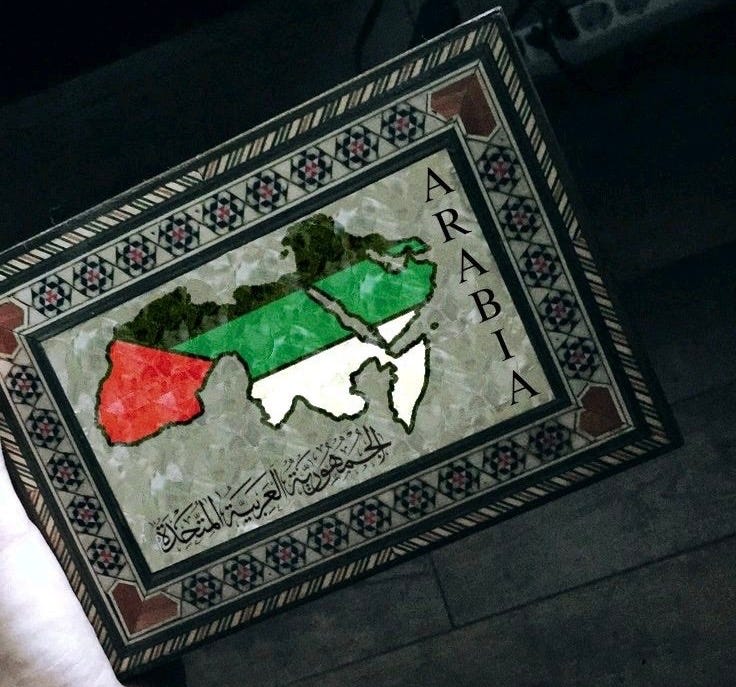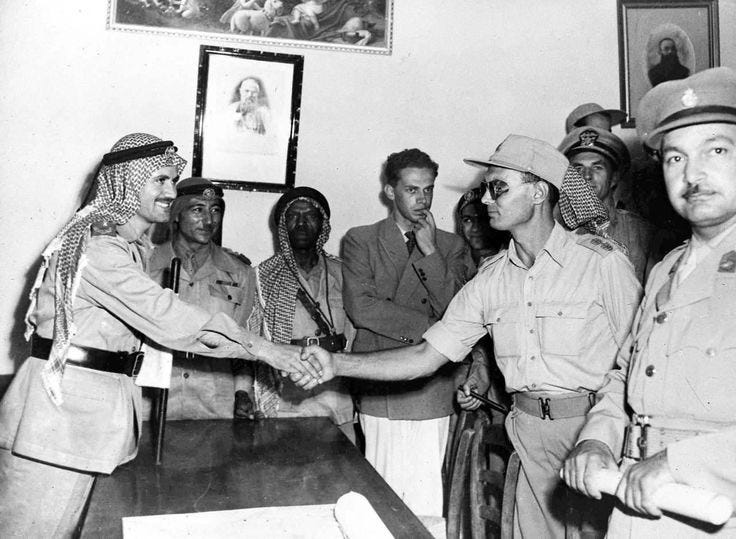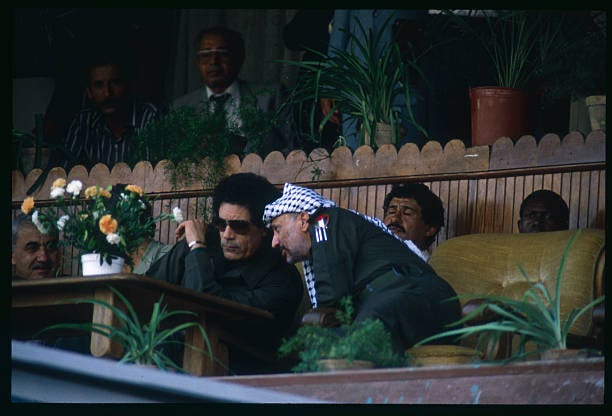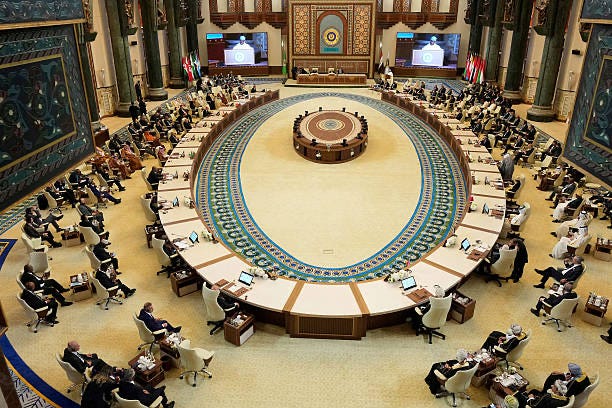The war on Gaza has again revealed what was always hidden in plain sight: that Palestine is not just under siege by Israel, but abandoned by history, betrayed by leadership, and suffocated by the illusions of dead solutions. As the smoke lifts from the ruins of another ceasefire, what remains is not merely rubble—but a question: Where do the Palestinians go from here?
A Struggle Recycled
Every phase of violence ends in the same ritual: exchange of prisoners, pledges of reconstruction, donor conferences, and political bargaining in foreign capitals. And yet the fundamental problem remains untouched. This is not merely a humanitarian tragedy; it is a geopolitical black hole. The Palestinian question has become the most durable unresolved crisis in modern history—not because it is insoluble, but because the options have become illusions, and the actors have become ghosts.
We are caught in a repetitive loop: wars that promise liberation but bring deeper entrenchment; negotiations that promise peace but end in more fragmentation; leadership that promises unity but delivers division. Each phase is darker, more desperate, more exhausted. The danger today is not just of another war, but of the slow and final erasure of the Palestinian cause as a strategic, political, and existential project.
Three Doors, All Traps
There are three options in front of the Palestinians today—and each is fraught with its own kind of death.
1. The Two-State Solution
This is the corpse we continue to dress in diplomatic language. The last serious attempt came at Camp David in 2000, when Barak, Arafat, and Clinton tried to stitch together a framework that was already bleeding. Arafat was offered a symbolic return of 45,000 refugees annually—a number insultingly small compared to the half million born in exile each year. East Jerusalem, the core of Palestinian identity and religion, was deemed non-negotiable by Israel. Arafat refused. “If I sign, I will be killed,” he said—and indeed, whether by poison or siege, he was killed.
Since then, the so-called peace process has been paralyzed, its vocabulary hollowed out. Oslo was buried, Madrid forgotten. The Palestinian Authority became a local administration, not a liberation movement. Even the memory of the dream has been weaponized.
2. One Secular, Binational State
A noble idea on paper, but one completely disconnected from regional realities. What power is prepared to impose this on Israel? What Arab regime dares to embrace a secular future when most are busy policing their own populations in the name of order? And can such a state emerge while apartheid walls still define every border and checkpoint? This option demands not just a change of strategy, but of history itself.
3. The Alternative Homeland
The most dangerous of all: the slow acceptance that Palestine will not return, and that the Palestinians must “settle” elsewhere—Jordan, Sinai, even the outer margins of Arab indifference. This is not a solution; it is the surrender of a people. And yet, this is the whisper behind many policies today—masked as humanitarian concern, pushed by normalization agendas, and paved with billions of reconstruction dollars that lead to nowhere.
A Broken House Divided
Before confronting Israel, the Palestinians face a darker enemy: themselves. The schism between Fatah and Hamas is no longer political—it is structural, generational, geographic. Gaza speaks one dialect, the West Bank another. Refugees in Lebanon, camps in Jordan, and youth in Europe all speak from different wounds. Elections came and went. Hamas won and was immediately sabotaged. Attempts at reconciliation—from Mecca to Cairo to Istanbul—failed before the ink dried.
We hear Hamas whispers it is ready to withdraw from governance, but the question is: withdraw to where? To the same Palestinian Authority that has lost all legitimacy? To Egypt’s tutelage under the guise of reconstruction? Or to some undefined vacuum, where Gaza becomes a playground for foreign investors and geopolitical speculators?
Palestinians have tried everything: armed resistance, diplomacy, pan-Arab alliances, Islamist revivalism, NGO politics. They have built states in exile, governments in refugee camps, and frontlines in every neighboring country. And yet they remain stateless. The problem is not a lack of creativity—it is the absence of a unified vision.
The Middle East: Oil, Blood, and Ghosts
Palestine is not a local issue. It is the gravitational center of the Middle East’s collapse. The region is a cursed equation of oil, blood, money, and ideology—four elements that, when mixed, burn endlessly. From Iraq to Syria to Yemen, the Palestinian question echoes. And yet, as regimes normalize with Israel and dissociate from the cause, Palestine stands increasingly alone—used as a slogan, abandoned as a strategy.
The Arab world has failed not only Palestine—but itself. It has forgotten how to define victory, how to imagine liberation, how to name the enemy. Every new leader rises by erasing the past and every summit ends in silence.
Between Madness and Courage
In an age of managerial politics and programmed responses, history still demands madmen. Trump, for all his recklessness, dared to knock on the forbidden doors of geopolitics—Greenland, Canada, even the moving of embassies. He was called crazy. But perhaps only madness now dares to open history’s locked gates.
The Palestinian cause, too, requires this madness. The daring to imagine again. Not just to resist, but to redefine. To speak with a voice not sanctioned by embassies, nor filtered by donors. A voice that knows the next war will come, and still chooses to fight for a different kind of peace.
From Ruins to Strategy: Gaza, the Arab Failure, and the Choices That Remain
When I look at Gaza at its ruined neighborhoods, at the men and women who still shovel out the rubble with bare hands, at the infants and the old who have become the ledger of a failed century I do not see merely a humanitarian tragedy. I see a civilizational test. The question it asks us is blunt: do we, as Arabs, still claim history or have we accepted a life of managed defeats and political impotence?
I write as someone who has seen the cycles, who has mapped the failures and the missed possibilities. My argument is not sentimental or apologetic. It is strategic. Gaza is the fault line of the modern Middle East because it concentrates everything that has failed elsewhere: the collapse of emancipatory politics, the triumph of transactional elites, the outsourcing of sovereignty to external powers, the conversion of liberation into a marketable product. To change Gaza’s fate we must change the political grammar of the Arab world. That is a heavy claim. It requires heavy thought.
The Long Century: Mandates, Partitions, and the Inherited Map
History is not a memory; it is an architecture. The British Mandate era, the Peel Commission debates, the wartime partitioning and the exoduses of 1948 — these are not mere background. They set the parameters of every subsequent political choice. There were moments when different futures were conceivable. Federal arrangements, confederations, bi-national solutions were discussed and then discarded because politics hardened into maximalisms. The Zionist movement did not arrive by accident on Palestinian soil; it carried decades of planning, capital, and strategic networks. It became, in its early decades, a functional partner for global capital and for powers that wished to instrumentally manage the Middle East.
When the British withdrew and the armies moved in, the area’s geography was not only redrawn by guns but by institutions. Egypt administered Gaza. Jordan administered the West Bank. The PLO built institutions in exile in Tunis. These are not small facts; they are the skeletal supports that later rotted. The 1988 Algiers declaration, the PLO’s exile governance, the return of Palestinian politics to the territories after Oslo — all these episodes were meant to create a state-in-the-making. Instead the process ossified into administrative fragmentation and patronage rule.
Camp David in 2000 was a last serious attempt to close the old loop. It failed not because the idea of peace is impossible but because the compromises asked of the Palestinians were, in practical and moral terms, empty. When the offer of return is reduced to tens of thousands while the refugees and their descendants number in the millions, you are not negotiating with equal parties; you are managing memory.
The Political Anatomy of Fragmentation: Hamas, Fatah, and the Graveyard of Reconciliation
Year 2006 passed in rupture with a sense of dread. The elections that year were not merely a local contest. They represented a people’s choice and were met with containment rather than accommodation. We speak casually about Hamas and Fatah as if they are two rival trunks of the same tree. They are not. Their divergence is generational, social, religious, and geopolitical. Gaza became a laboratory of isolation: embargo, targeted strikes, recurrent wars of attrition and obliteration. The Gaza polity hardened into an island of governance separate from the West Bank, whose institutions were hollowed out by both Israeli policy and international management.
When reconciliation is brokered in Mecca, Cairo, or Istanbul and falls apart on the drive home, it is not because the negotiators lack goodwill. It is because the structural incentives favor fragmentation: Israel benefits from a divided interlocutor, donors prefer regulated projects to political transformations, and Arab regimes prioritize stability over the messy risk of supporting an independent Palestinian sovereign power that might reshape regional politics.
This is why talk of Hamas “withdrawing” from Gaza is not an abstract policy question. If they truly step back, who assumes authority? Do we accept Palestinian Authority chapter two — only weaker and more dependent? Do we accept Egyptian trusteeship under the rubric of reconstruction? Or do we allow a space to open where contractors and “development partners” write the law of the rebuilt city? These are not technicalities. They are the real terms of surrender.
Demography as Resistance and the Silent Front
Do not underestimate birthrates. Demography is a form of politics in the Middle East — and in Palestine it has been a form of survival and a claim on tomorrow. The high fertility rates and the expanding Palestinian diaspora are not just statistics. They are the slow accumulation of political pressure. In a geography where political rights are distributed by census and ballot and border, population is a strategic resource. The plan to fragment territory, to convert the West Bank into enclaves and Gaza into dependency, is simultaneously a plan to diffuse and diminish Palestinian demographic weight. We must think of reproduction not as incidental social trivia but as an axis of political planning: health care, family support, education, schooling and secure living conditions are thus also strategy.
Reconstruction as Enclosure: When Peace Becomes a Market
There is a perverse global industry that has been growing around every conflict zone. Reconstruction, donors, international NGOs, private contractors — they arrive with cranes and tenders, and they leave with concessions and management rights. I will not be naive: after war there must be rebuilding. But the question is: who writes the terms? When money drives policy, political settlement is re-engineered by balance sheets and corporate boards, not by rights. The reconstruction of Gaza can be turned into a mechanism to cement a status quo that denies return and forecloses sovereignty: property rules that bar refugee return become law; urban plans are designed to favor external control of ports and utilities; public services are privatized; security becomes subcontracted to allies rather than coordinated with Palestinian institutions.
If we allow reconstruction to proceed without being anchored to Palestinian sovereignty, we will be building new cages.
Egypt and the Sinai Axis: Containment in the Name of Stability
The logic is simple and merciless. Egypt sees Gaza not as a partner in liberation but as a security variable. Cairo must protect the Suez and its internal order. The security coordination at Rafah, border closure regimes, the interest in a “managed” Gaza — all of this is an expression of the state’s survival instinct. Egypt can facilitate reconstruction but it will not do so in a way that empowers a partner that can undermine its internal politics. That is why any diplomatic plan that ignores Cairo is naive. Sinai is the hinge. Whoever controls Sinai, controls the degrees of freedom allowed to Gaza.
The Fall of the Damascus Corridor and the Isolation of Resistance
The regional architecture of resistance — the Tehran–Damascus–Beirut corridor — was never only symbolic. It was a logistic artery for weapons, advice, political backing, and deterrence. The fall of central Damascus as we experienced it in late 2024 is not a minor tactical event. It broke the overland connection that had allowed the axis to breathe, move, and threaten. With that corridor impaired, the strategic depth Iran had in the Levant contracted. Hezbollah was more exposed. Gaza became, in strategic terms, more isolated than it had been in decades. This is not merely military calculus. It is also political psychology: without a credible regional backstop, the calculus of those who would countenance continuing a high-cost confrontation in Gaza changes materially.
The Arab Regimes: Winners of a Pyrrhic Peace
This is the hardest truth for many to swallow. The real immediate institutional winners from the last two decades of chaos are not Islamic militias and not the Palestinian people. They are the Gulf monarchies and the security states of the region that have removed the volatile capacity of mass movements to alter their regimes’ domestic compact. It is a bitter paradox: the weakening of popular revolutionary energy made the Arab officialdom safer. The official reaction has not been to marshal a bold project for Palestinian agency. It has been to normalize, to secure, to buy influence. The result is clear: we have stabilized decadence at the price of historical dignity.
This is the moment to ask a simple question: when did Arab political strategy become risk-averse to the point of surrender?
Comparative Lessons: Mandela, Algeria, Rhodesia and the Politics of Choice
We must study comparative cases not to sentimentalize them but to sharpen our options. South Africa under Mandela and de Klerk chose accommodation and integration, dismantling an apartheid nuclear shadow partly in exchange for political legitimacy and institutional integration. Algeria fought on another trajectory. Rhodesia showed the costs of settler supremacy. The lesson for Palestine is not to mimic any single case. The lesson is that outcomes were shaped not by moral sentiment alone but by strategic choices, by diplomatic imagination and by the capacity to convert defeat into leverage at the negotiating table. Arab elites have lacked that synthesis.
Jordan and the Nightmare of Alternative Homelands
Do not pretend the “Jordan solution” is some marginal thought-experiment. It is an active part of regional political imagination precisely because the pressure of displacement is so great and because the mechanisms to absorb large populations are considered geopolitically convenient for some. Jordan is a state with a substantial Palestinian population. An engineered transfer of millions would destroy its social contract and would not resolve the Palestinian question. It would be a political crime disguised as a geopolitical fix. We must be candid: those who entertain this option are not friends of Arab dignity.
Israel Today: A State Without a Constitution, a Strategy of Entanglement
Israel’s political strategy has been to manage and expand rather than to close a chapter. Settlements, the fragmentation of the West Bank, the annexation-by-facts-on-the-ground approach, and the elastic reading of sovereignty have been deliberate. Political actors have pursued demography as policy and security as the ruling script. This logic makes two-state outcomes improbable on the ground and pushes the region toward long-term managed inequality or toward one of the other ghosts.
The Kurdish Card, Regional Fracturing, and Tel Aviv’s Opportunism
Israel’s courting of Kurdish networks and its relationships across regional fault lines are not accidental. Tel Aviv bets on fragments that can be leveraged against unified national projects. The Kurds, with their own long trajectory, are being asked to play a role they may not want. This is the classic tactic of the liberal imperial playbook: use minorities as levers of influence. We should see it for what it is and counter it with policies that strengthen regional integration rather than fragment it further.
What Must Be Done: A Pan‑Arab Strategy for Palestinian Sovereignty
Here I move from diagnosis to program. If we are serious about turning Gaza from a permanent humanitarian emergency into a political subject that can act with dignity, we must do the following.
First, Palestinian political ownership of reconstruction. Any money that flows into Gaza has to be anchored to a Palestinian political framework that is constitutional. No building contracts without guarantees for return, no urban plans without Palestinian municipal sovereignty. Agents who come with offers must be made to accept the primacy of Palestinian political agency.
Second, demographic resilience is political infrastructure. Invest in family health, schooling, job creation and shelters in a coordinated program that stabilizes the social fabric. This is not charity. It is strategy.
Third, design confederal, step‑wise political architectures. A single decisive leap to one state is unlikely now. But we can create joint economic zones, corridor guarantees for free movement between Gaza and the West Bank, and supranational institutions for water, energy and transport — models that expand sovereignty incrementally and create interdependence that makes disappearance politically costly.
Fourth, repoliticize Arab solidarity. The decades of summitry and ritual statements must give way to a risk-taking diplomacy. Saudi Arabia, Egypt, the Gulf states and Algeria must return to a vision of regional legitimacy centered on justice for the Palestinians. This will require political courage and strategic recalibration that increases the regime risk these states currently fear. But without this recalibration there will be only management without resolution.
Fifth, strategic patience tempered with audacity. We need frameworks that last for decades, not the bland stop‑gap measures donors prefer. The Arab project must move beyond slogans and design institutions that can resist predatory market capture of the peace.
Where the Axis of Powers Stands: Russia, China, the United States
The balance of power is shifting. Europe is weak, the United States plays transactional games, Russia seeks influence as a revisionist power, and China watches with a long economic lens. If Arab states can build a serious, credible regional project that centers Palestinian agency while offering economic and security benefits to other great powers, they can create leverage. This is not easy. But it is possible if Saudi and Egypt, in particular, are willing to act as honest brokers with the geopolitical imagination to coordinate between Moscow, Beijing, and Washington.
On Madness and Vision: The Need for a New Political Imagination
We are told that diplomacy is compromise and that realism is caution. I contend that there are moments when realism requires audacity. The Palestinian case requires a politics that can think decades ahead and imagine institutions that make dispossession impossible rather than merely temporary. We have the human resources. What we lack is a political will shaped by a coherent Arab strategy.
Arab Reality
Gaza is not only a cry of blood. It is a test of political imagination. If we fail to transmute pity into power, we will have only pity to present for the next generation. The choices are not easy. The options are painful. But decency and strategy intersect here: to rebuild Gaza without Palestinian political agency is to construct a long‑term prison for a people. That must be refused.
More to come. The question I leave with my readers is simple and brutal: when reconstruction cranes arrive, who will sign the legal instruments that determine property, movement, citizenship and security? The financiers? The foreign contractors? Or Palestinian sovereign institutions backed by a reborn Arab project? The next moves by Cairo, Riyadh, Moscow, Beijing, Washington and Ankara will decide whether Gaza becomes a site of rebirth or a machined memorial to failure. The choice is ours.







